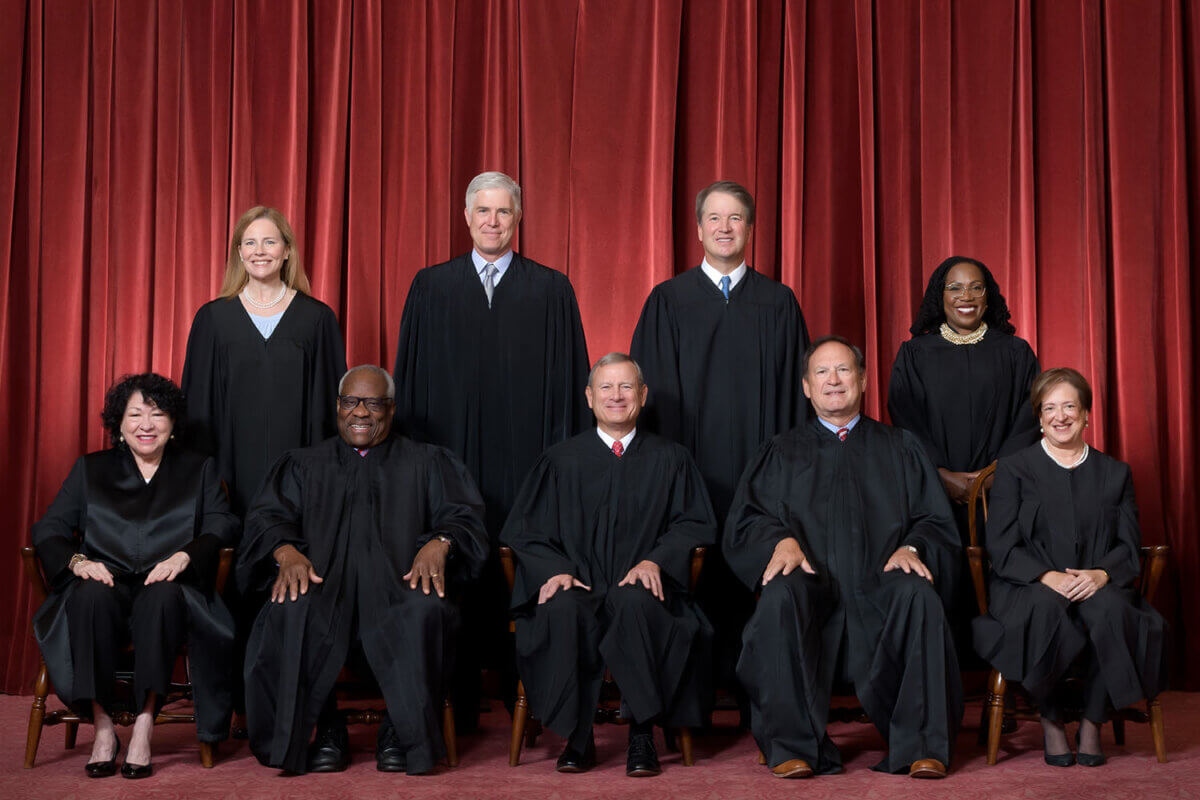The Supreme Court on July 24 paused a lower court ruling that prevents voters in seven states from suing over alleged discrimination under the federal Voting Rights Act.
The U.S. Court of Appeals for the Eighth Circuit previously issued an order barring voters in the seven states it covers from filing the lawsuits. The states within the circuit’s geographical boundaries are North Dakota, South Dakota, Arkansas, Iowa, Minnesota, Missouri, and Nebraska.
The emergency, unsigned order was granted in a case known as Turtle Mountain Band of Chippewa Indians v. Howe. The court did not provide reasons for its new ruling.
On July 16, Justice Brett Kavanaugh had temporarily put the Eighth Circuit’s ruling on hold.
Justices Clarence Thomas, Samuel Alito, and Neil Gorsuch dissented from the new order, but did not explain why.
The applicants who sought the order from the Supreme Court are the Turtle Mountain Band of Chippewa Indians, the Spirit Lake Tribe, and three Native American voters. The respondent is Michael Howe, North Dakota’s secretary of state.
The Indian tribes had argued in their lawsuit that an electoral map the North Dakota Legislature approved in 2021 violated the nondiscrimination provisions of the Voting Rights Act. Section 2 of the statute prohibits voting practices or procedures that discriminate on the basis of race, color, or membership in a large language minority group.
The case entered the national spotlight after an 8th U.S. Circuit Court of Appeals panel ruled 2-1 that the tribes and other private parties have no legal right to enforce Section 2 of the Voting Rights Act. It mimicked an earlier 8th Circuit ruling concerning a redistricting case in Arkansas.
The Supreme Court’s emergency ruling lifts the 8th Circuit’s ruling until any appeals are resolved. It does not reflect the court’s final decision on the matter.
It comes as the justices prepare to rehear a major redistricting case in Louisiana next term, which legal observers have closely watched as several conservative justices signal a desire to make it more difficult to bring Voting Rights Act lawsuits.
The high court has not yet announced the legal question it will consider when it rehears the case.
The tribes, backed by the NAACP Legal Defense & Educational Fund, argued the 8th Circuit’s recent decision is at odds with decades of history and takes away a key pathway to challenge discrimination in the seven states the 8th Circuit covers.
“They likewise contradict every circuit court and three-judge district court—all unanimous unlike the divided decision below—ever to have considered the question of private enforcement of Section 2,” the tribes wrote in court filings.
North Dakota urged the justices to turn away the appeal, stressing the tribes’ “assumptions are not holdings.”
“And the fact that Section 2’s private enforceability was not previously challenged does not mean Congress spoke with the clarity needed to create a privately enforceable right, as members of the Court have recognized,” the state wrote in court filings.
This is a developing story…
Share your thoughts by scrolling down to leave a comment.













